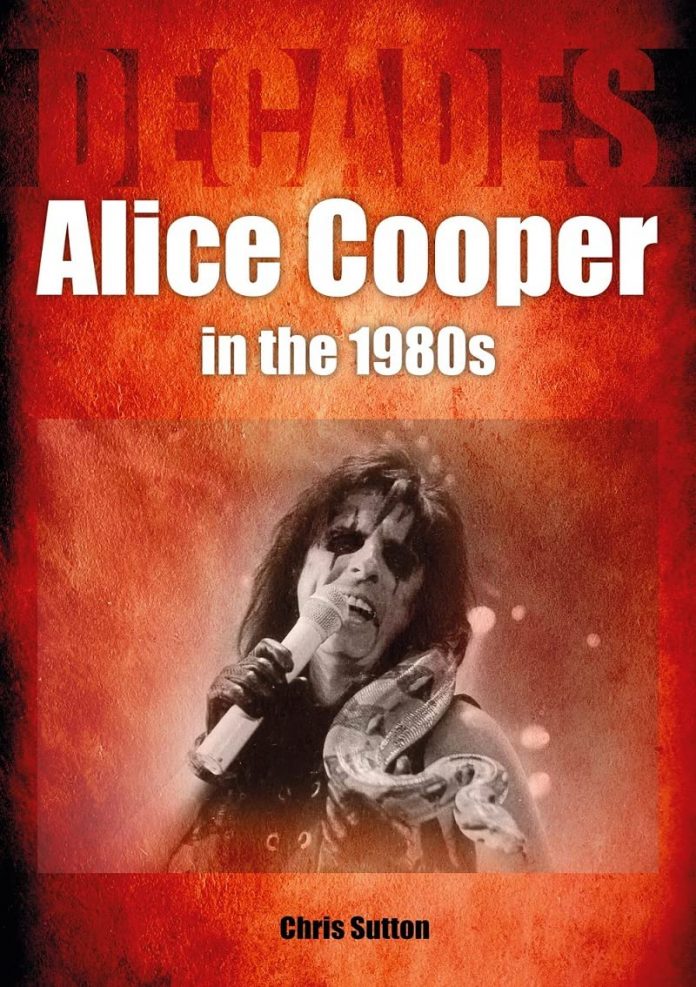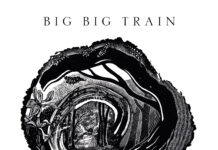(Chris Sutton – Sonicbund Publications)
After a previous decade in which Alice Cooper (band) achieved fame and notoriety in equal measures plus a timeless anthemic hit with ‘School’s Out,’ saw Alice Cooper (artist) become a solo success with Welcome To My Nightmare. In the 1980’s charts Coopers journeys through a lengthy fallow period where he barely troubled charts anywhere with several albums which, despite the inclusion of the occasional gold nugget, failed to make even the smallest impact, even with his fanbase.
This dire decade saw Cooper releasing a body of work which probably constitutes the most diverse he ever recorded, everything from hard rock to MOR radio-friendly commercial rock, even down to rewriting and rerecording a couple of older tunes to ‘rid them of their cliches.’ During the 80s he released a total of seven albums, mostly to a largely indifferent reception as the quality of what he put out failed to match what he’d previously done. In this respect he was similar to several other major artists who also struggled during the 1980s .. Neil Young, Bob Dylan, Paul McCartney and The Stones all struggled with diminishing returns, releasing albums which didn’t even come close to their seventies output. But the difference between these artists and Cooper was that Cooper released a trio of albums .. Special Forces (‘81), Zipper Catches Skin (’82) and DaDa (’83) .. he graphically refers to as his ‘Blackout albums’ in that “I wrote them, I recorded them and I toured them, but I don’t remember them.” The fact he was in the throes of a full-on cocaine addiction plus, in 1983, was hospitalised with liver cirrhosis due to his excessive alcohol consumption probably didn’t help. For a few years he even stopped touring and, in 1984, was ultimately dropped by Warner Brothers. In the same year he and his wife Sheryl divorced but didn’t make the decree final and, as of 2023, they’re still together.
But it was Constrictor (’86) which saw Cooper finally regaining his mojo and return to acclaim. The film of his 1987 tour, ‘Welcome To My Nightmare,’ saw him bringing his “violent, twisted onstage fantasies to a new generation.” This tour produced one highly amusing moment, as a Labour MP said this tour should be banned from playing in the UK, saying “I’m horrified by his behaviour and it goes beyond the bounds of entertainment”. The MP uttering these words was David Blunkett .. who’s registered blind. During the same period, it was filmed which helped Cooper return to the public eye, with ‘Friday 13th part V1, Jason Returns’ featuring the song ‘He’s Back (the man behind the mask).’ Cooper also had a small role as a vagrant in John Carpenter’s film ‘Prince of Darkness’ (did Ozzy sue for plagiarism?). What was a turbulent decade for Cooper ended on a high with the release of 1989’s Trash, ‘one of the biggest hits of all the hair metal albums,’ and reaching no2 in the UK charts.
This thoughtful and intelligent book about the ‘Godfather of Shock-Rock’ follows on from the highs of the 1970s, and recalls an interesting history of a period the artist concerned doesn’t even remember the first half of, where his struggles to retain his rock credibility was sorely tested – and features contributions from several friends and musicians, not all of whom are impressed with Cooper during this period. For the longtime Alice Cooper fan, if you’ve been along for the ride since the seventies, this book probably won’t tell you much you’re not already aware of, but for the new fan who wants to know more about one of the key influential and artistic figures in rock, someone who hit rock bottom during the eighties, someone who’s been there, seen it all and done it all .. often to excess .. but who lived to tell the tale and become a legendary and iconic presence, this book comes highly recommended.



















